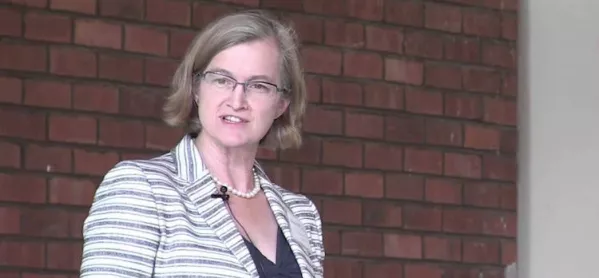There are “encouraging signs” that the 2m social distancing rule may be relaxed “in the not-too-distant future”, the Ofsted chief inspector has said.
Speaking this morning on BBC Radio 4‘s Broadcasting House programme, Amanda Spielman also stated that social distancing in schools is “an aspiration, not an absolute requirement”.
Asked why a school in Northern Ireland may introduce a 1m social distancing rule, while a school in Surrey would be expected to stick to 2m, Ms Spielman said: “Every public health authority sets the rules that it thinks give the greatest chance of balancing, controlling, limiting and reducing infection with...allowing the activities that they relate to to carry on in a meaningful way.
Ofsted: Teachers’ ‘can-do’ energy can help open schools
Accountability: Ofsted ‘needs clarity’ to inspect schools’ remote offer
Coronavirus: Ofsted ‘must focus on wellbeing’ after Covid closures
Scotland: Social distancing ‘prevents anywhere close’ to 100% attendance’
“There isn’t a single right answer. We look around the world and we can see that there are variations - no two countries look exactly alike in the framework they’ve set.
Coronavirus: Social distancing in schools
“I think there are some encouraging signs that the medical situation is going well enough that we can expect to see some of the constraints and particularly the social distancing constraint reduced in the not-too-distant future.”
She added that “within the bubbles that schools are currently expected to operate in” social distancing is “an aspiration, not an absolute requirement”.
“So there’s a bit more flexibility already then than perhaps everybody recognises,” Ms Spielman said.
While it is true that the government does not expect social distancing to be enforced in primary school “bubbles”, it stresses that secondary school students should be kept 2m apart - although the guidance does state that some mixing will be “unavoidable”.
The official guidance for primary schools states: “We know that, unlike older children and adults, early years and primary age children cannot be expected to remain 2m apart from each other and staff. In deciding to bring more children back to early years and schools, we are taking this into account.”
But for secondary schools, it states: “Schools should aim to practise social distancing in line with the measures the government is asking everyone to adopt in public and in workplaces, including keeping pupils 2m apart from each other where possible.
“This is more achievable in secondary schools than in primary schools, due to the age of the pupils, and is more important as mixing between groups - while limited as far as possible - will be more common in secondary schools.
“Ensuring sufficient distance between pupils is likely to mean classes are no more than half their usual size. However, this may vary due to individual school circumstances (for example, a larger group could be taught in a larger space provided social distancing can be maintained and mixing is minimised).”
The guidance adds: “We recognise that the range of subjects taught in secondary schools means that some mixing may be unavoidable to provide pupils with face-to-face support from subject teachers. We would expect that these groups are still smaller than normal.”




